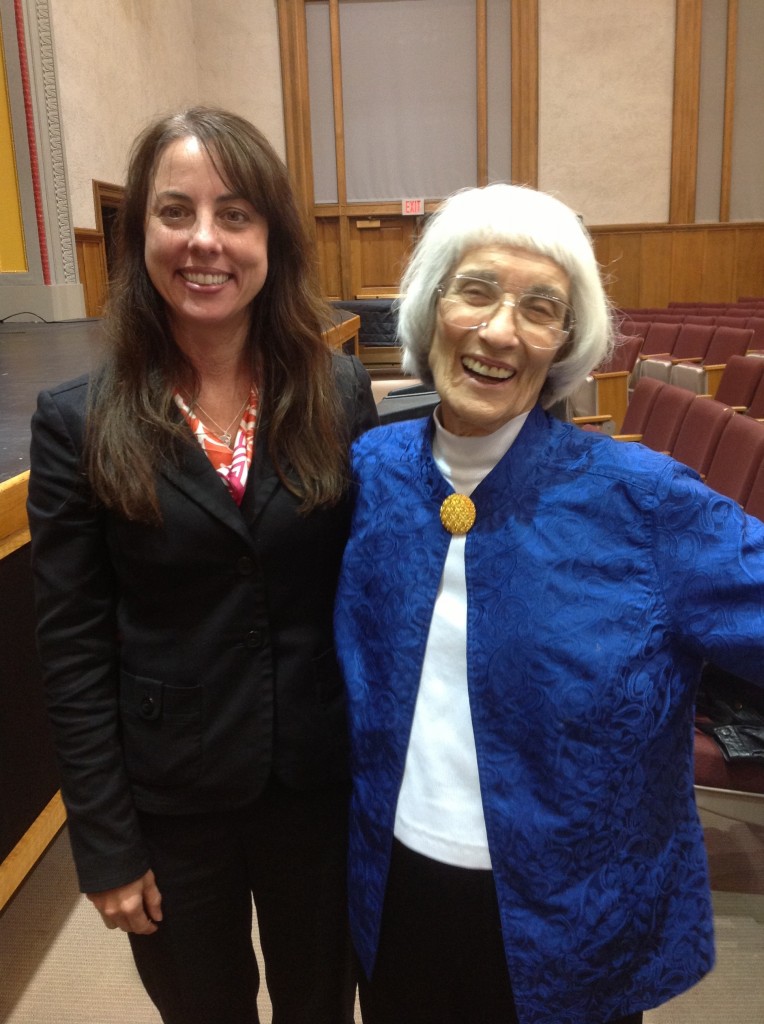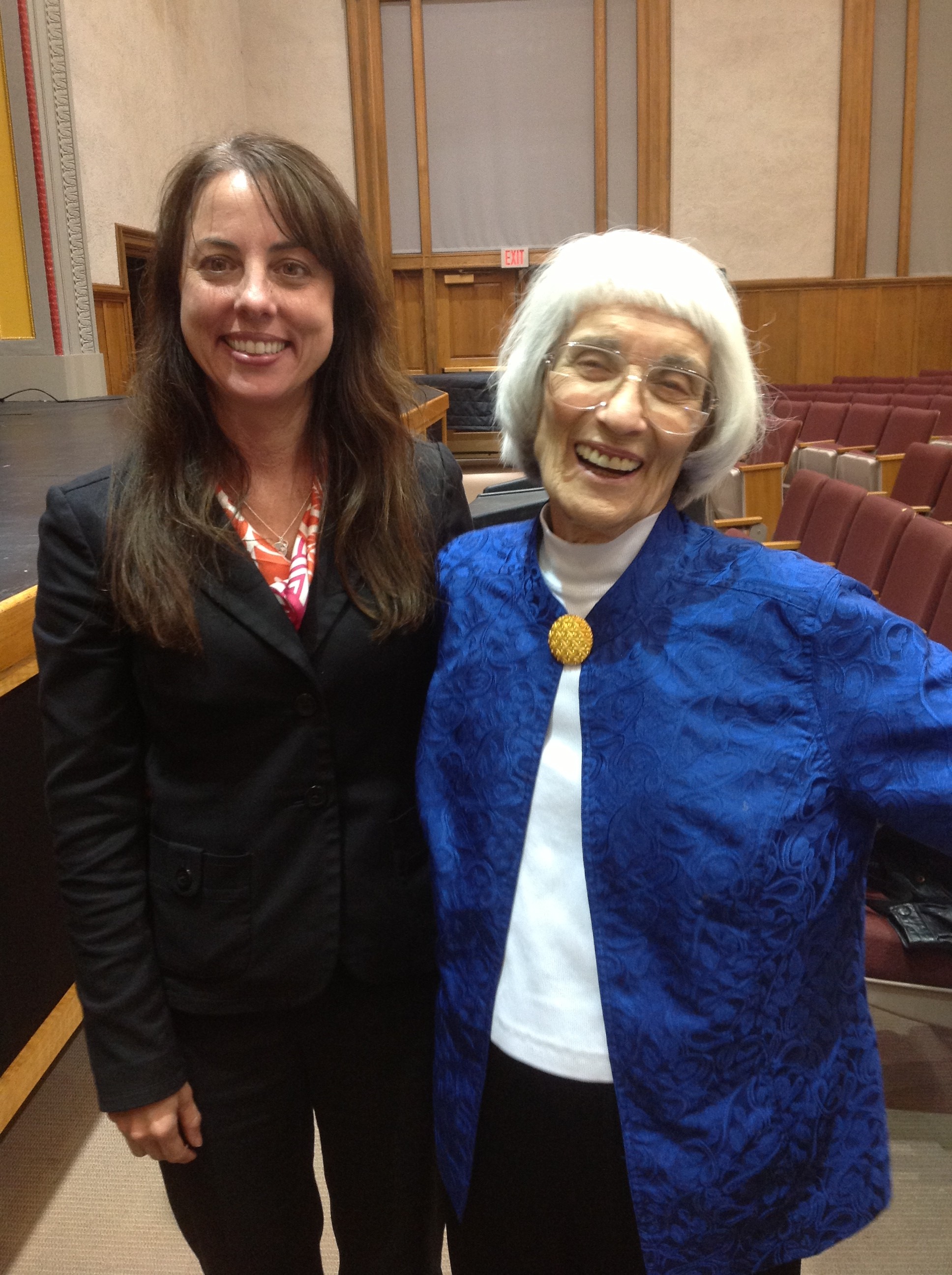

Photo Credit / Dana Reese
BY DANA REESE
EDITOR IN CHIEF
On April 29 Dr. Bernice Sandler spoke at ESU over a series of two sessions in the Keystone Room, and one session in Abeloff Center for the Performing Arts, focused on sexual harassment, assault, and Title IX.
“Sexual harassment is a big problem. It is a relatively new problem in our country, and it forces all kind of barriers,” said Sandler during her 3 PM talk. “It’s women, it’s men, it’s different diversities—it is a real problem and institutions need to deal with it.”
Sandler is known worldwide for her role in the creation and introduction of Title IX, a document that changed the way were women were treated within the education system substantially, including sports teams and extracurricular activities.
“No person in the United States shall, on the basis of sex, be excluded from participation in, be denied the benefits of, or be subjected to discrimination under any education program or activity receiving Federal financial assistance,” states Title IX.
While to a student at ESU today this might sound commonplace or common sense, before 1972, when Sandler was looking to work in higher education, she struggled to find a job in a male-dominated system.
“The women’s movement is certainly changing the relationships between men and women,” said Sandler. As she described her struggles in the late 1960s and early 1970s, the social divides between then and now became clear.
Sandler told the story of her job search in 1969. After not being considered for one of many openings in her department at the university, she approached a colleague to ask why.
“You come on too strong for a woman,” he told her.
Sandler admitted that at the time she didn’t think of it as strange. It was not until later, when she talked to her husband, that he informed her that it was sex discrimination.
As she went on trying to find a job, similar situations continued to arise; though her qualifications were excellent, being a woman was not.
She began to look for ways to fight back, but Title XII and similar documents did not seem to protect against gender discrimination.
“The breakthrough occurred when I was reading a report of the U.S. Commission on Civil Rights…The report described a presidential Executive Order prohibiting federal contractors from discrimination in employment on the basis of race, color, religion and national origin. There was a footnote, and being an academic, I quickly turned to the back of the report to read it. It stated that it had been amended…to include discrimination based on sex.”
From here on Dr. Sandler’s legacy continued. Soon she would be meeting with Representative Green, and women and men willing to speak out about the inequality in education.
According to Sandler, the bill that would one day change the entire education system was barely noticed at the time, and they did not even lobby for it.
“The historic passage of Title IX was hardly noticed,” said Sandler.
And, to a certain extent, we tend not to notice the impact Title IX has had on our experiences at ESU. It is easy to forget, or pass by, the fact that a little over forty or so years ago, we would not have a women’s field hockey team; we would likely have a low number of female students at the university.
Sandler admitted that at first, the group working on Title IX did not think about its impact on sports and extra-curricular activities.
Title IX is commonly talked about in relation to college and school sports, and how programs are funded today.
More women are participating in college sports than ever before, thanks, in part, to Title IX.
Between 1972 and 2008, there has been a more than 450% in crease in female athletes at the college level.
Because of the opportunities presented by Bernice Sandler’s discovery in Title IX, more women athletes have begun to become better and better at their respective sports. This, in part, contributes to the United States’s success in women’s international sports.
Email Dana at:
dmr3170@live.esu.edu

